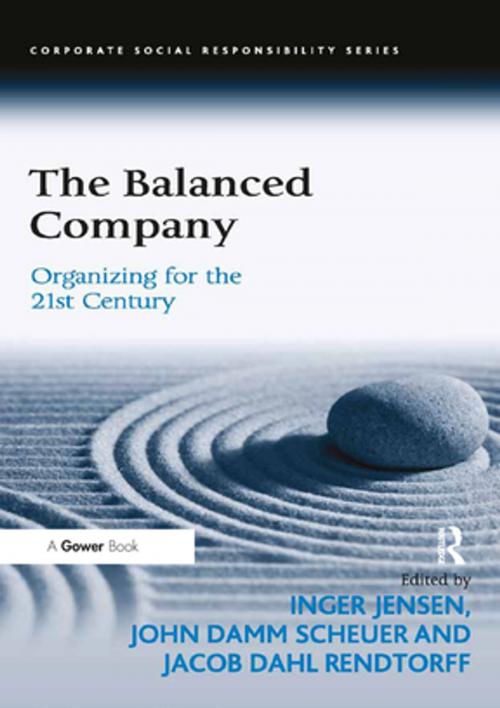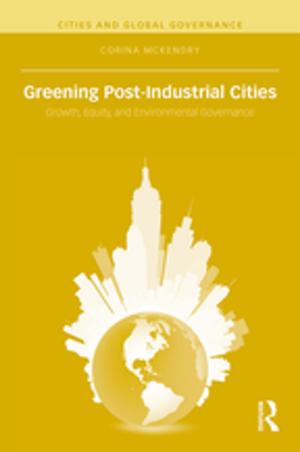The Balanced Company
Organizing for the 21st Century
Business & Finance, Business Reference, Business Ethics| Author: | Inger Jensen, John Damm Scheuer | ISBN: | 9781317040712 |
| Publisher: | Taylor and Francis | Publication: | March 23, 2016 |
| Imprint: | Routledge | Language: | English |
| Author: | Inger Jensen, John Damm Scheuer |
| ISBN: | 9781317040712 |
| Publisher: | Taylor and Francis |
| Publication: | March 23, 2016 |
| Imprint: | Routledge |
| Language: | English |
Today’s organizations are embedded in global and local network relationships that demand more. They have to consider the importance to customers, investors and employees of being respected in wider society and behaving ethically, so it is increasingly important for companies to reflect systematically on how to balance profits with other criteria when making decisions and acting. In short, they need to learn how to become The Balanced Company. Requiring sustainability in production processes and ethical employment of the work force in suppliers' production facilities, at home and abroad, has resulted in new challenges. Strategists need to make balanced choices about long-term goals and the allocation of resources. They must analyse, understand and adjust strategies to market, political, value and technology-related changes. Communication specialists need to take the value systems and assumptions of stakeholders into consideration. Change specialists need to balance continuity and change. Meanwhile, managers make balanced decisions about control or trust; human resources design jobs to make them attractive as well as motivating, and marketers must consider what is important to consumers and stakeholders. Last but not least, leaders have to acknowledge that there are times when organizations have to be taken out of balance during change. The Balanced Company provides answers to corporately responsible and ethically driven balanced decision making. Read it to help your company and stakeholders identify what can be achieved and what to avoid, and about the processes by which values are taken into account and applied in practice.
Today’s organizations are embedded in global and local network relationships that demand more. They have to consider the importance to customers, investors and employees of being respected in wider society and behaving ethically, so it is increasingly important for companies to reflect systematically on how to balance profits with other criteria when making decisions and acting. In short, they need to learn how to become The Balanced Company. Requiring sustainability in production processes and ethical employment of the work force in suppliers' production facilities, at home and abroad, has resulted in new challenges. Strategists need to make balanced choices about long-term goals and the allocation of resources. They must analyse, understand and adjust strategies to market, political, value and technology-related changes. Communication specialists need to take the value systems and assumptions of stakeholders into consideration. Change specialists need to balance continuity and change. Meanwhile, managers make balanced decisions about control or trust; human resources design jobs to make them attractive as well as motivating, and marketers must consider what is important to consumers and stakeholders. Last but not least, leaders have to acknowledge that there are times when organizations have to be taken out of balance during change. The Balanced Company provides answers to corporately responsible and ethically driven balanced decision making. Read it to help your company and stakeholders identify what can be achieved and what to avoid, and about the processes by which values are taken into account and applied in practice.















